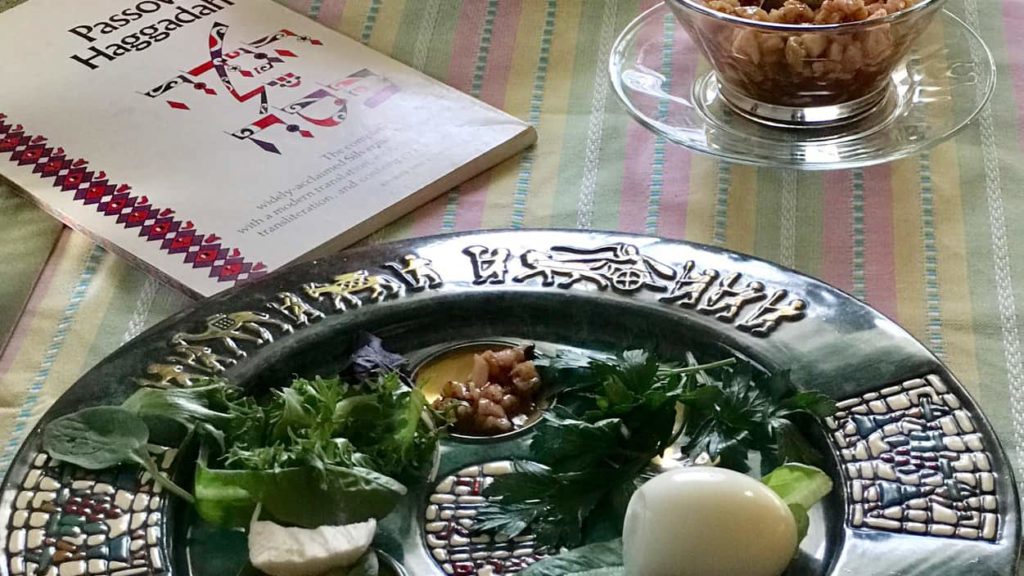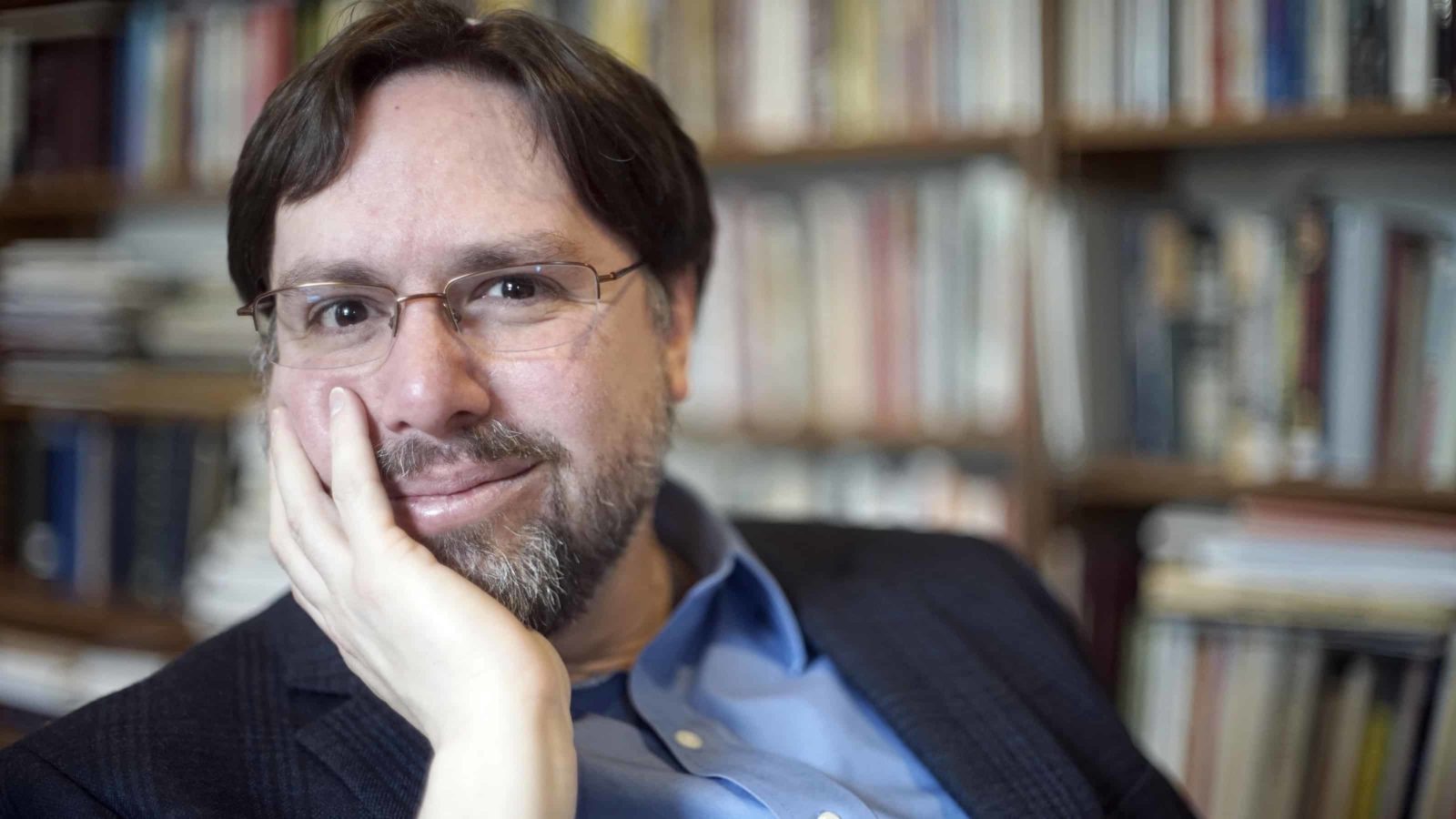He remembers the smell of lemon-scented furniture polish. It was the day in spring when his family would open all the windows and rub down the wood, and he would sit with his younger brother, cleaning silver. Family was coming for the holiday, and they cleaned the house. He would help his mother in the kitchen.
She made a walnut cake made with egg whites to help it rise.
“That is the taste of Passover,” said Rabbi Josh Breindel at Temple Anshe Amunim.
He remembers homemade macaroons, sparkling apple juice, boiled eggs and parsley.
“I remember the music,” he said.
As a vocalist now, he loves to share the melodies he knew as a child. Singing those songs to his congregation has a power and a magic in it.
He sings in a clear baritone the refrain Dayenu — it would have been enough — the song exulting that God has given so much more.
“It’s rousing,” he said. “When the children sing it, everyone claps and stomps.”
Then, quietly, he sings a psalm he remembers his father singing. It is a song of thanksgiving to God, who turns rocks into pools and flints into fountains. Thinking of the English words for the Hebrew, he finds himself remembering the translation he grew up with, and he takes the book off the shelf: “What ails thee, oh sea, that thou didst flee, Jordan that thou turnst back. Ye mountains that ye skip like a ram …”
The answer, he said, is the presence of God.
Today, the excitement he feels in preparing for the holiday is almost like the lift of preparing for a vacation.
“I feel the wonder still as an adult,” he said. “I want that.”

A Seder plate sits by a glass bowl of charoset and a Haggadah for Pesach (Passover).
This is a holiday caught up in springtime, he said, in renewal, miracles and connection to God. Passover celebrates the Exodus, the day when Moses brought the people of Israel out of Egypt. They have left their slavery and walked into the desert. Everything is new — everything has changed.
Pesach, Passover, is a festival of freedom, Breindel said.
He will celebrate with his family, with friends and with his congregation and his city.
Temple Anshe Amunim traditionally welcomes the community into its April Seder on the second night of Passover. They will have a brisket dinner, and the Seder is an evening of music and a retelling of the Passover story.
Breindel will bring in poetry and share his own stories. Growing up in Providence, R.I., he lived next door to an Egyptian Jewish woman whose family had fled Egypt in the 1970s.
A holiday about freedom contains a call to action, he said. It is easy, even in a glance at the headlines, to find people still fighting to be free.
‘A holiday about freedom contains a call to action. It is easy, even in a glance at the headlines, to find people still fighting to be free.’
“It’s happening now,” he said. “What are we called to do?”
Leaders at each table will hold conversations in small groups, to ask questions inspired by the day: “If you had to leave home right now” he said, “with only what you could carry, what would you bring?”
It’s a night for students and adults and elders, laughing and singing, Breindel said. And it has moments made for children. At one point in the evening, a child asks the adults to explain parts of the story.
Breindel remembers asking the four questions as a boy, feeling stage fright as he prepared the words he is now teaching his own students to remember. And his own 3-year-old son Elijah’s turn will come soon.
Elijah is looking forward to the holiday, Breindel said. He is looking forward to seeing his grandmother.
He is also looking forward to searching for Hametz — that is, leaven. Jewish families use no leavening, no fermented grains like yeast-risen bread, during Passover, in memory of the people of Egypt and their sudden flight. On the night before the first Seder, the household will search to make sure they have none. Traditionally, the search is done by candle light, Breindel said. Last year, Elijah got to search with a feather and a flashlight, but this year he will be allowed a candle.
Elijah is also looking forward to looking for the Afikoman, a piece of matzah hidden for the children to find.
“It’s fun to play with your parents like that,” Breindel said.
And Breindel is looking forward to crafting the holiday his son will remember. The Seder is made to captivate children’s imagination, he said.
“It’s designed to be something for the whole family,” he said. “You’re given a commandment to tell a story [to your children.] It wasn’t until I became a dad that some of the richness became clear to me, the idea of passing in this experience. That’s something that touches me deeply.”
A holiday may be cyclical he said. In some ways, it repeats — the words and the music and the flavors. He and his family will make their own matzah together. He says it tastes much better than the store-bought kind and is easy to make.
And yet the celebration can evolve as his son grows older. A holiday can be new every year, like spring.

